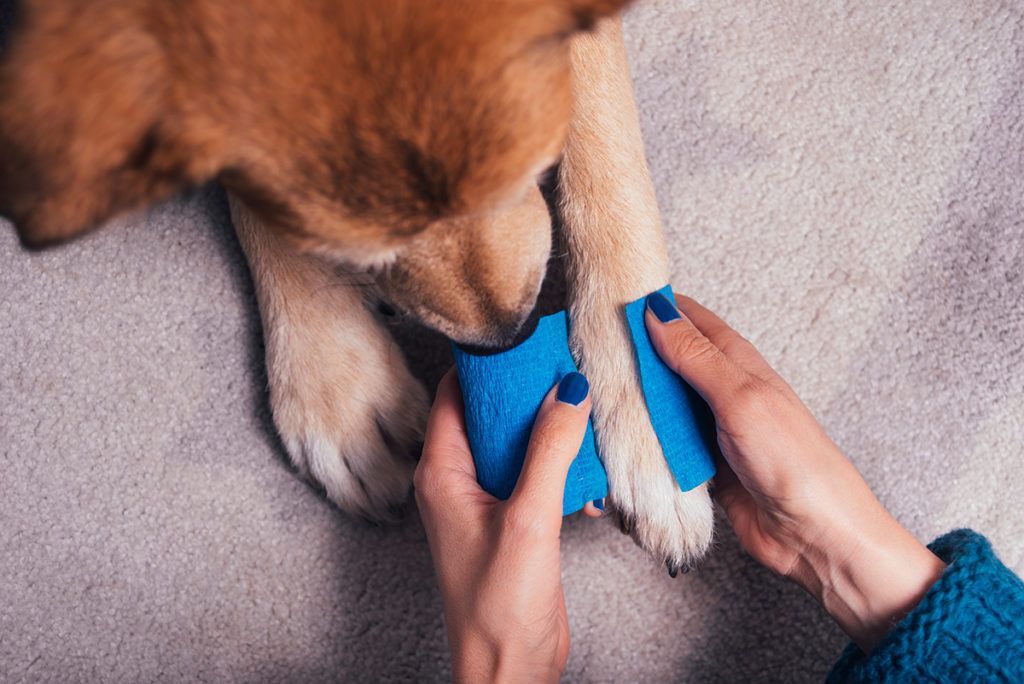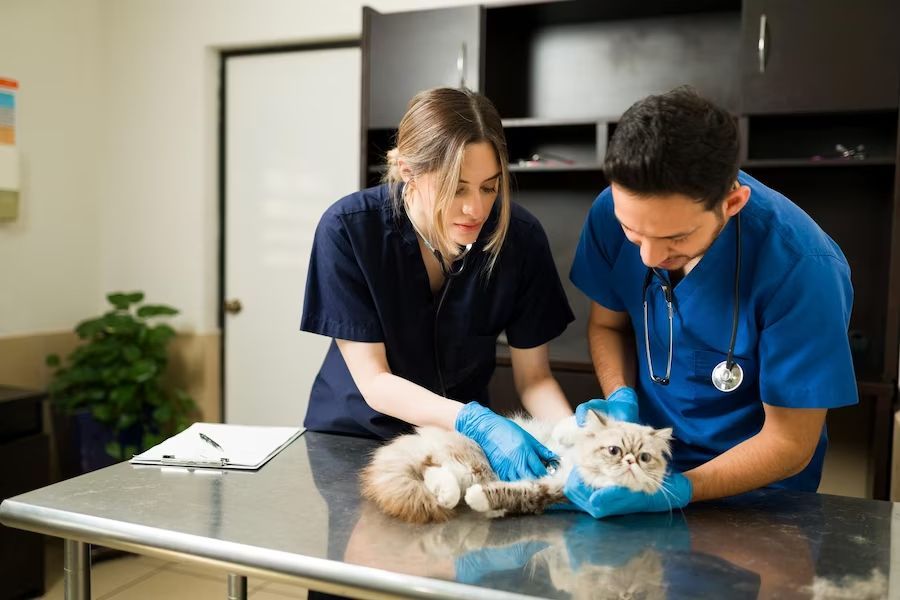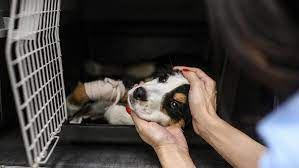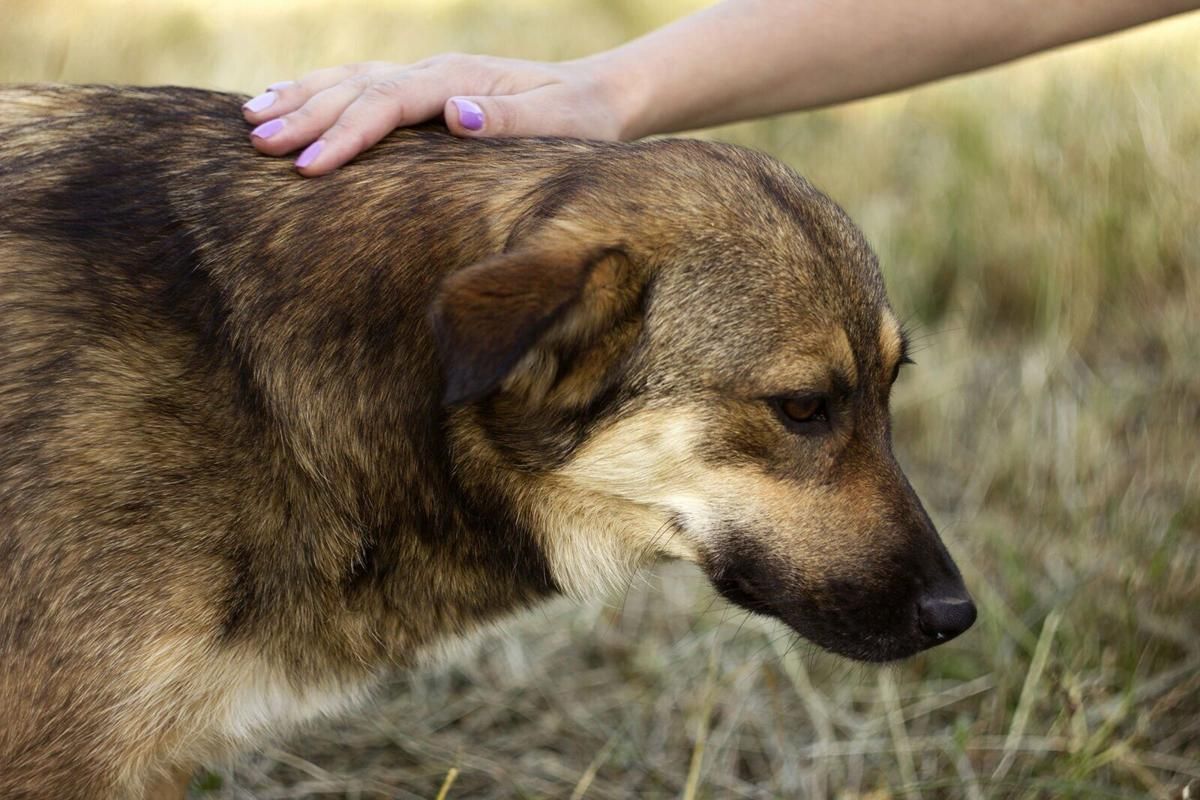Common Causes for Dog Hair Loss

If your dog is losing its fur, it could be due to one of these reasons.
A dog’s fur coat is one of the most beautiful aspects of the animal. However, a pet can develop hair loss at some point in its life. Excess shedding can be alarming, but discovering the cause is not out of reach. Here are some of the most common causes for dog hair loss.
Seasonal Shedding
The best outcome you could have is that nothing is wrong with your dog at all. It could just be seasonal shedding. Some breeds build up a winter coat and shed it in the spring, while others shed profusely year-round, such as corgis.
Nutrition
Another reason for dog hair loss is a nutritional imbalance. Dogs need significant percentages of protein and fat in their diets for healthy skin, and thus a healthy coat. Without those nutrients, their fur may become dull and dry and fall out. Your vet can recommend the best dietary plan .
Stress
In some cases, a stressful circumstance can cause a dog to lose hair. It could be moving house or the departure of a close companion. When the pet is calmer, one could expect its fur to regrow.
Allergy
An allergy may be the most common reason for dog hair loss. A canine can have three different types of allergies: environmental, flea, and food allergies. An environmental allergy, also known as atopy, is the most prevalent.
Infection
Yeast and bacteria may always be present in your dog’s fur at a small level, but a build up of these can lead to an infection. Ringworm, one of the most common, is a fungal infection that requires an ointment or cream for treatment.
Mange
Mange in dogs involves two types of parasitic disease. One, called demodectic mange, cannot transfer to humans. The other, which is sarcoptic mange or scabies, can. Flea and tick preventative treatments typically solve the problem.
Alopecia
Alopecia is a genetic autoimmune disease in which the body rejects its own hair follicles, and hair loss happens in patches. Unfortunately, there is no known cure, but it only occurs in a few breeds. In some cases, the alopecia is merely seasonal.
Cushing’s Disease
Cushing’s disease is a hormonal disorder in which a tumor in the pituitary gland produces too much cortisol. Your dog would have other symptoms besides hair loss, including muscle weakness, incontinence, an enlarged belly, and excessive thirst and hunger. Before jumping to any conclusions, however, talk with your vet for a proper diagnosis.
Trust the Care of Your Pet to the Professionals at 24/7 Local Veterinarian!
At 24/7 Local Veterinarian, our veterinary professionals strive to provide your pet with the very best of veterinary care. We believe that the best care for your pet should be provided by experienced, compassionate, and knowledgeable veterinary professionals. With two Maryland locations in both Baltimore and Pasadena, we are always ready to welcome your pet as a new patient! Give us a call today at (833) 220-1880! For more information, as well as updates on veterinary news and topics, visit us on Facebook , Twitter , or LinkedIn !
Contact with your local vet for the best advise
Resource Center









